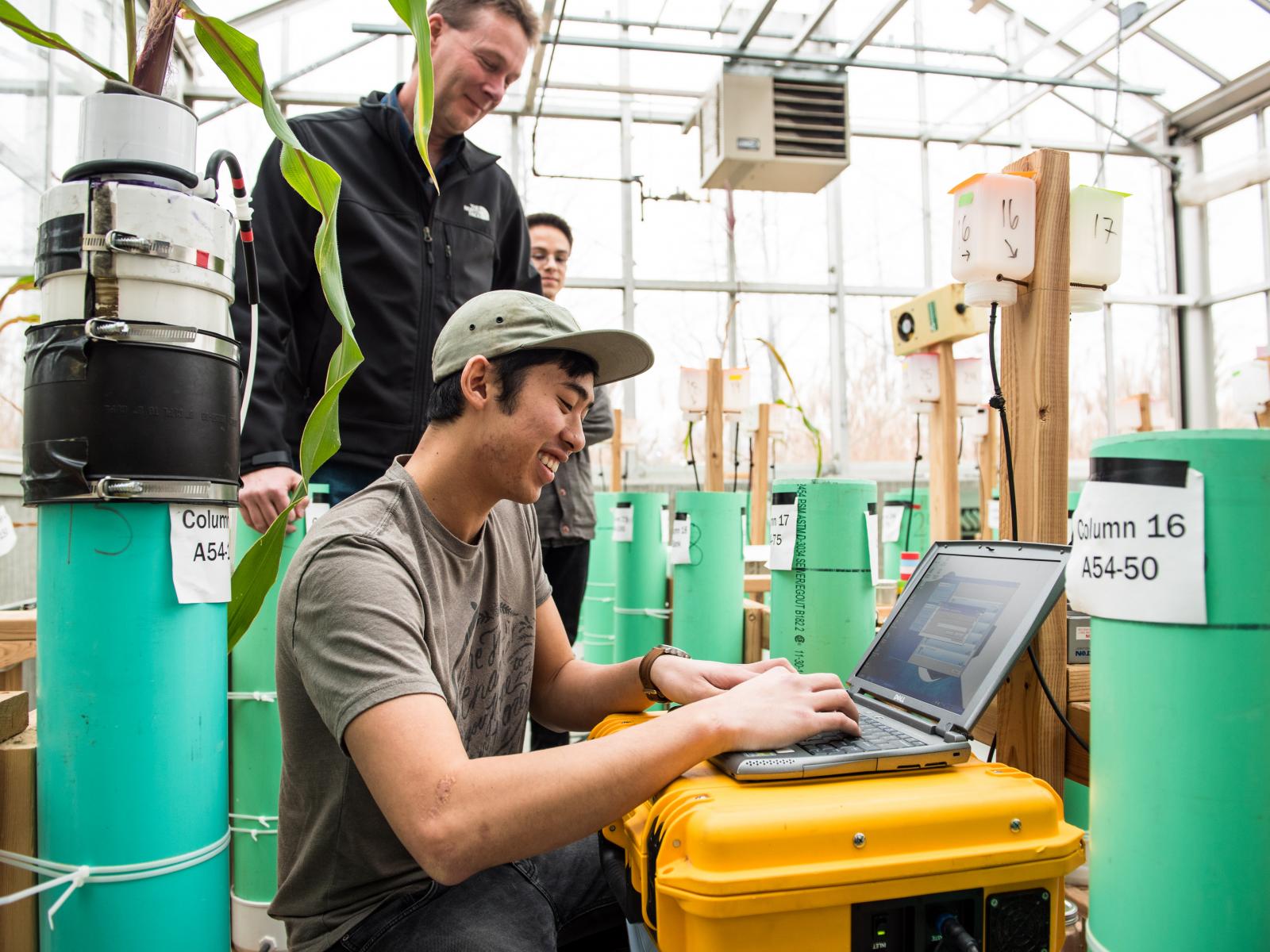Bioproducts, Sciences, and Engineering Laboratory
Solving the puzzle of energy with biomass

In an energy-hungry world, getting to the future increasingly means getting back to nature. Over the next 25 years, the fastest-growing sources of U.S. power will be renewables like wind, water, solar, and bioenergy. All of these present production and delivery puzzles—questions that are being addressed by our researchers. Our focus is to recycle carbon that is otherwise a waste stream or a liability and produce fuels and products that are important to society. We build on unique capability in catalysis supported by PNNL’s Institute for Integrated Catalysis and fungal biotechnology supported by world-class equipment housed in the EMSL user facility.
Bioenergy, for one, has been a PNNL research interest since the oil crisis of the 1970s. The Bioproducts, Sciences, and Engineering Laboratory (BSEL) is devoted to the science and engineering of deriving energy sources from agricultural residues (e.g., corn stover and wheat straw), forest residues, municipal and industrial waste streams, and other renewable resources. BSEL is on the nearby campus of Washington State University (WSU) Tri-Cities and houses both PNNL and WSU researchers, enabling collaborative research and developing a pipeline of talent to meet future workforce needs. This is further enforced by the WSU-PNNL Bioproducts Institute, which extends our WSU partnership to all WSU campuses.
At BSEL, scientists and engineers move science to industrial processes in a manner that improves energy security, reduces petroleum imports, and decreases the impact of fuels on the environment. To accomplish this, researchers at BSEL have access to:
-
a high bay that can be used to integrate and scale up processing steps for conversion of biomass to fuels and chemicals
-
high-pressure catalytic reactor laboratories for hydrogenation and other chemical conversion processes
-
bioprocessing laboratories for development of fungal fermentation processes
-
wet chemical laboratories for preparing catalysts and feedstocks
-
a combinatorial catalysis research laboratory
-
an analytical chemistry laboratory
-
R&D space for process engineering.
As part of its education role, BSEL has classrooms, teaching and research laboratories, and office space for PNNL researchers and WSU faculty and graduate students.